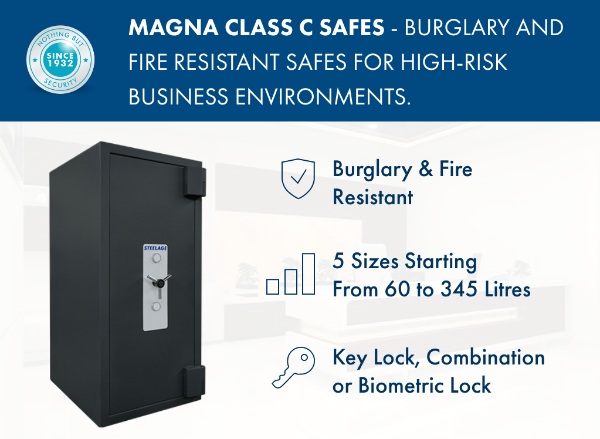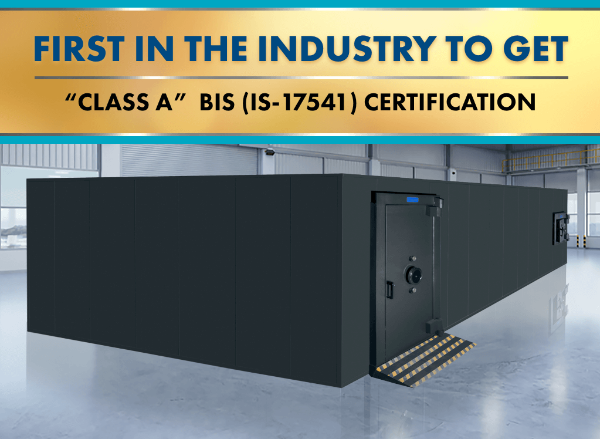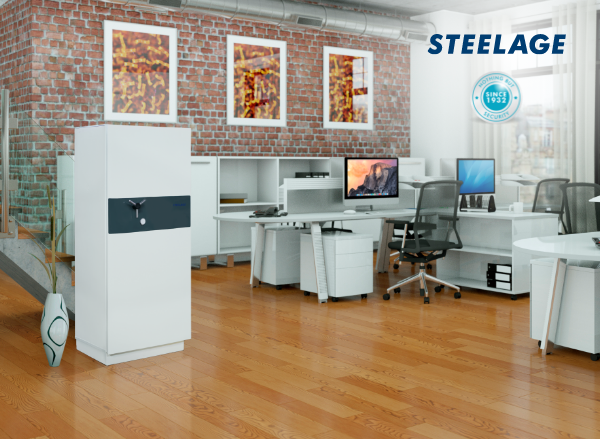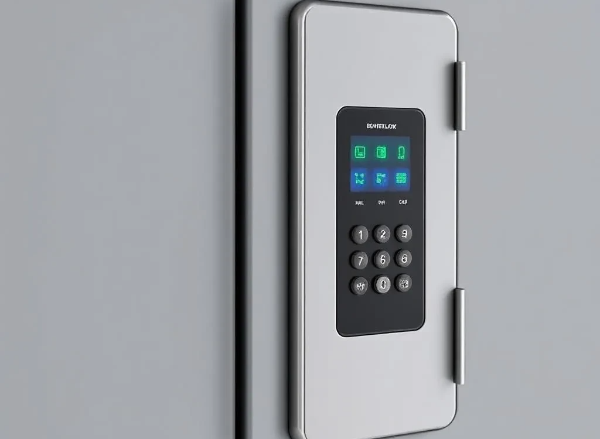
STEELAGE BLOGS
Thu 1st February 2024
Biometric Security Safe: The Role of Biometric Technology in Modern Safes

In the world of security, the integration of biometric technology into modern safes stands out as a notable advancement. This blog aims to shed light on the practical implications of biometric security in safeguarding our valuables and how it simplifies our daily security routines.
Understanding Biometric Security
Biometric security, in essence, utilizes distinctive physical characteristics for access. Common examples include fingerprints, eye scans, or facial recognition – essentially serving as personalized keys to our safes.
A. Embracing Convenience
A primary advantage of biometric safes lies in their inherent convenience. Gone are the days of memorizing codes or handling physical keys. With biometric technology, a simple touch or glance is all that's required to unlock the safe. This not only saves time but also mitigates the risk of forgetting passwords or misplacing keys.
B. Uncomplicated Security
Biometric security offers a level of personalization and security that traditional methods often lack. For instance, your fingerprint is unique to you, minimizing the likelihood of unauthorized access. This adds an extra layer of protection to the contents of the safe.
C. Eliminating Memory Struggles
Biometric safes alleviate the common frustration of trying to recall complex combinations. Since your fingerprint is always with you, there's no risk of forgetting it. This straightforward approach simplifies the process of accessing your belongings.
D. Customized Access
Biometric safes cater not only to tech enthusiasts but also to families. These safes allow the registration of multiple fingerprints, ensuring that each family member or your store personnel can access the safe effortlessly. This user-friendly feature removes the complexity associated with remembering intricate codes.
E. Choosing the Right Biometric Safe
For those contemplating an upgrade to a biometric safe, considerations should include a user-friendly interface, the ability to register multiple fingerprints, and overall durability. Exploring user reviews can further guide individuals towards a reliable choice. Companies such as Steelage and Chubbsafes provide the option of choosing between different lock options such as Key Lock, Combination Lock or Biometric Access Control System.
The incorporation of Biometric security into modern safes offers a harmonious blend of convenience and robust security. As we navigate a future where technology plays an increasingly prominent role, embracing biometric security emerges as a sensible and straightforward step towards safeguarding our valued possessions.
Frequently Asked Questions (FAQs)
1. Q: Is biometric security reliable for safeguarding valuables?
A: Yes, biometric security adds a robust layer of protection. For instance, fingerprints are unique to individuals, minimizing the risk of unauthorized access. It provides a secure means of ensuring the safety of your belongings.
2. Q: Can multiple people access a safe with biometric security?
A: Yes, biometric safes often offer the option to register multiple fingerprints. This family-friendly feature allows various individuals, such as family members, to access the safe effortlessly.
3. Q: Are biometric safes complicated to use?
A: No, biometric safes are designed to be user-friendly. The process typically involves a straightforward setup to register fingerprints, making it an uncomplicated and accessible security solution.
4. Q: What factors should be considered when choosing a biometric safe?
A: When selecting a biometric safe, consider factors such as a user-friendly interface, the ability to register multiple fingerprints, and overall durability. Reading user reviews can provide valuable insights into the reliability of the chosen safe.
5. Q: Where can I find reliable information about choosing a biometric safe?
A: Reliable information about choosing a biometric safe can be found through product reviews, manufacturer specifications, and reputable security equipment retailers. Exploring customer feedback can provide valuable insights into the performance and reliability of specific models.


